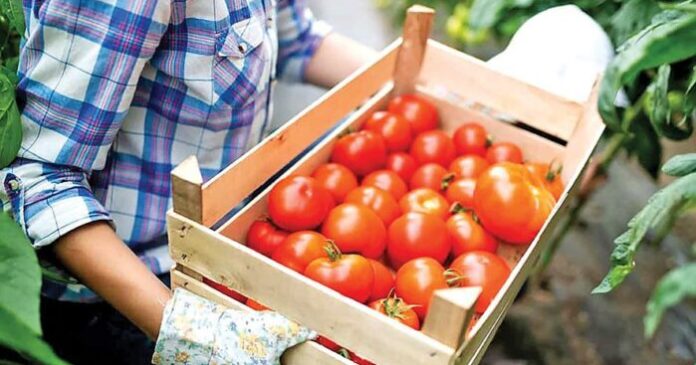The DA has grilled the Mpumalanga provincial government over delays in the opening of the R2-billion Mpumalanga International Fresh Produce Market (MIFPM), accusing the agriculture department of misleading the public and playing with the hopes of small-scale farmers.
During a fiery budget debate in the provincial legislature on Tuesday, Trudie Grovè-Morgan, the DA’s member of the provincial legislature, slammed the department’s claims that the long-awaited market would soon become operational, saying the public had been duped.
“We were told — confidently and repeatedly — that this market would open on April 1, 2025. It is now July, and the doors remain shut,” said Grovè-Morgan.
“No ribbon was cut. No trucks arrived; no market buzz fills the air. What the department offered was not an operational milestone — it was a bad April Fool’s joke, and it was at the expense of poor farmers, cooperatives, and hopeful entrepreneurs across the province.”
Her remarks coincided with the insistence of agriculture MEC Khethiwe Moeketsi that the facility would significantly transform the agricultural landscape.
“We are proud to highlight one of the province’s flagship interventions — the imminent operationalisation of the Mpumalanga International Food Market,” Moeketsi told the legislature, adding that the market would provide farmers access to buyers in “local wards, townships, the province, and nationwide.”
Through the initiative, the MEC further promised partnerships with Oman and China, the piloting of 30 “food market squares”, and support for 1 600 small businesses.
“We have not only created a trading platform; we have built a gateway,” she said.
R400m Mpumalanga Agro-Fund
But in a move that caught the DA off guard, Moeketsi also introduced a brand-new R400-million Mpumalanga Agro-Fund — a blended finance initiative in partnership with the National Empowerment Fund, Land Bank, and Sanlam Insurance.
The fund promises to support key value chains like grain, poultry, cannabis, and aquaculture while guaranteeing market access for enterprises linked to the MIFPM project whose doors remain shut.
This juxtaposition did not escape the DA.
“This failure represents not merely a delay but an erosion of trust, credibility, and administrative integrity,” Grovè-Morgan said, accusing the department of “legislative dishonesty” for claiming the Mkhondo Agri-Hub — damaged in a storm and still under repair — was already being integrated into the market’s supply chain.
She also took aim at the repeated mentions of capital projects like agri-hubs and processing mills.
“The so-called agri-hubs, mills, and processing centres are repeated in every budget cycle like recycled promises — mentioned not for progress, but to justify continued expenditure without tangible delivery.”
DA wants verifiable progress report
The Mkhuhlu Agri-Hub, which the department hailed for supplying 32 hospitals and six boarding schools, was described by Grovè-Morgan as “the exception, not the norm”.
In past public utterances, the provincial government insisted that the MIFPM would uplift 150 000 small-scale farmers and create over 115 000 jobs at farm level, with 156 permanent roles at the market.
The project was also touted for its export potential and climate-controlled facilities designed to revolutionise agricultural trade in the province.
However, Grovè-Morgan remained unconvinced. “Illusions do not feed families, do not uplift farmers, and do not advance rural economies,” she said.
She concluded with a demand for three urgent actions: “A formal and verifiable progress report on the Mpumalanga International Fresh Produce Market, urgent clarity on the Mkhondo Agri-Hub, and an independent, youth-focused impact assessment of the Fortune 40 Programme.”
The DA said until those are provided, the budget should be viewed as “technically inflated, strategically misleading, and politically unaccountable”.



